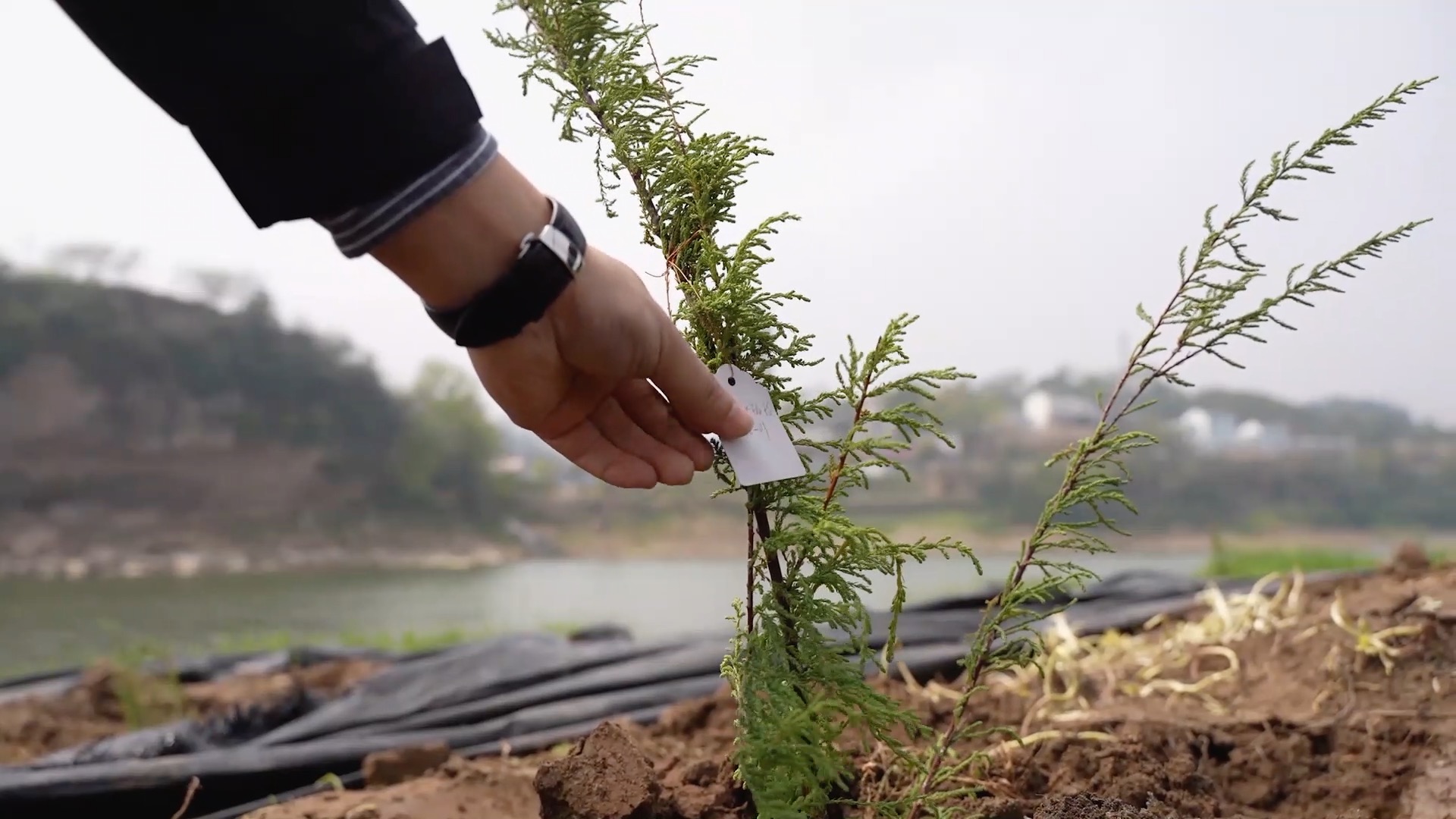01:06

On a small island along the Yangtze River in Yichang City, 3,000 branches of artificially bred Myricaria laxiflora were planted by staff members of the Yangtze River Rare Plant Research Institute.
The Myricaria laxiflora is endemic to the Three Gorges Reservoir region, and it can only be found along the Yangtze River basin in Sichuan and Hubei provinces, and Chongqing Municipality. The species is on the decline due to habitat loss, and is classified as a second-class protected plant in China.
Now, the endangered species is hoping to make a comeback with the help of conservationists. "The returning of rare and endangered plants to nature is a systematic project. For instance, it involves field domestication studies and exploration on the flowering and fruiting conditions of returned plants," said Qiu Liwen, a researcher at Yangtze River Rare Plant Research Institute.
The amphibious plant is dormant during summer, when it is submerged in water, and starts to grow after the waters recede in winter. Researchers believe it is of great significance to study the evolution of plants and the relationship between plants and the environment.
The institute will keep studying the flowering and fruiting conditions of these plants to make sure they can adapt and thrive in their new environment.
As well as the Myricaria laxiflora, the institute has transplanted over 50,000 rare and endangered plants of over 30 species, such as the lotus-leaved maidenhair fern and Chinese yew, which are under first-class protection.
(Cover image is a screenshot)
(If you want to contribute and have specific expertise, please contact us at nature@cgtn.com.)

